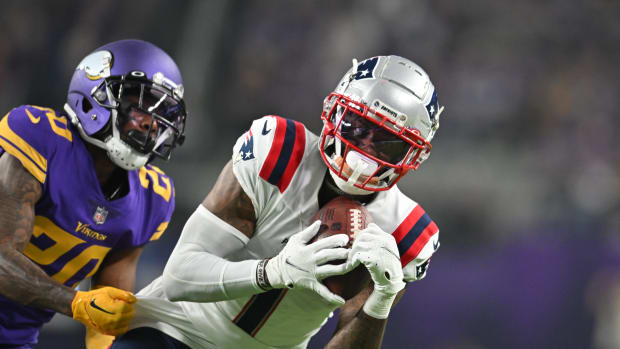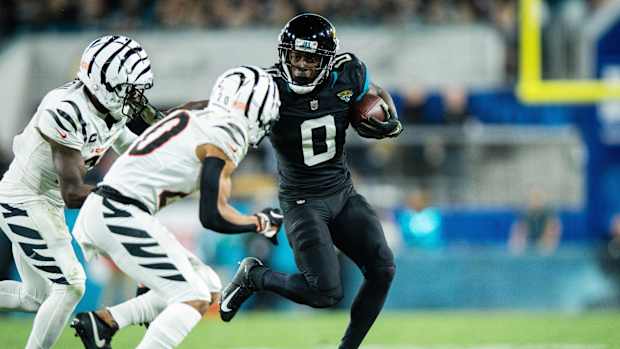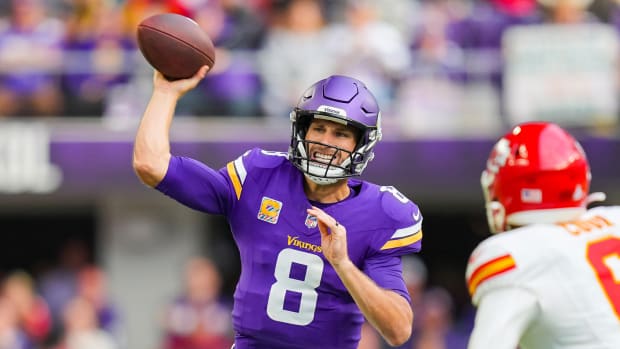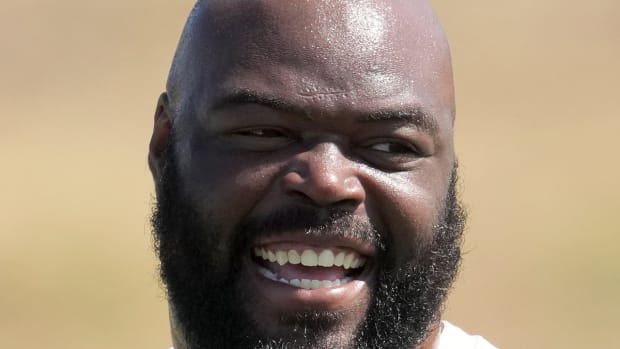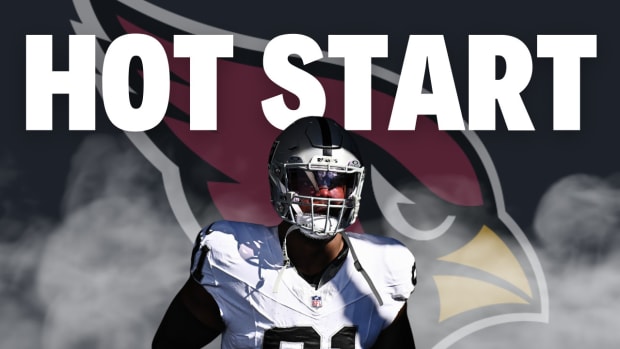
NFL Gets Proactive with Draftees on Domestic Violence Education
(Charles Rex Arbogast/AP)
By Kalyn Kahler
The first night of the 2015 draft was like any other in recent years. Roger Goodell was booed, college students became instant millionaires, and fans heaped either scorn or praise upon their team’s front office. But 48 hours before Goodell stood in the line of fire, drawing the ire of fans who haven’t yet forgotten the tumultuous 2014 season, the league took steps behind the scenes to reinforce its tougher stance on domestic violence and sexual assault.
The 26 prospects who made the trip to Chicago attended a private educational session run by Anna Isaacson, the NFL’s vice president of social responsibility. “There were a lot of things I didn’t know,” says linebacker Benardrick McKinney, a second-round pick of the Texans out of Mississippi State. “This was my first time getting taught the definition of domestic violence. A lot of guys like me probably have never been taught it. I was like, Wow, for real? I didn’t know that was going on.”
First Steps on New Policy
Back in October, the league began giving presentations to all of its players, coaches and team employees on how to identify and prevent domestic violence and child abuse. The MMQB took a look at what the process entails. FULL STORY
The NFL incorporated similar training across the league after its mishandling of the Ray Rice case last year. Over the course of three months, Isaacson and her team gave presentations to players, coaches, club personnel and league staffers on how to spot signs of an unhealthy relationship and on the meaning of consent. She then began planning her next move: to set expectations for incoming players.
“For the prospects who have their first moment with us at the draft, it’s important that they really learn what it is like to be an NFL player and they understand the responsibility that comes with that,” Isaacson says. “It’s not only about being in the green room and waiting to get picked—it really is about learning what the NFL stands for.”
The league recently showed more teeth in its new personal conduct policy by suspending Cowboys defensive end Greg Hardy for 10 games, but that punishment fit a pattern of the NFL being reactive instead of proactive.
“It’s good that they let us know coming through the door that it is a problem that should be taken care of,” says Melvin Gordon, the Wisconsin running back who was taken with the 15th pick by the Chargers. “There are too many problems going on, and they don’t want our class of rookies to have those problems, and then have people bash the league and be like, ‘You didn’t let those guys know coming in.’ ”
The educational session was open to friends and families and attended by several players’ girlfriends and mothers, including Laundria Perriman. Her husband, Brett, played 10 NFL seasons starting in the late 1980s, and her son, Breshad, a wideout from UCF, was a first-round pick of the Ravens. “That type of thing should take place, and they probably should even start it at the college level,” she says. “If they missed it in those early years, this is a good time to review it.”
Wideout Devin Smith, a second-round pick of the Jets, says Urban Meyer constantly preached domestic violence awareness at Ohio State, which made the NFL’s presentation feel like “déjà vu a little bit.” But Isaacson wants the message to be heard even earlier than college, which is why the NFL is working to create a character education program to be taught at the high school level.
“It will be geared toward high school coaches of all sports, girls and boys,” Isaacson says. “Coaches play such a critical role in the lives of young athletes. If we can educate coaches and they can then impart that knowledge to their athletes, we would really be having a head start on these tough issues.”
For former Clemson linebacker Vic Beasley, a first-round pick of the Falcons, the biggest takeaway from the pre-draft training session was realizing that bystanders should speak up rather than ignore a problem. “We just have to come together as a community and do better jobs of us being better as people,” he says.
All incoming players will go through the same training session at the league’s larger rookie symposium this summer.
“We heard from many consultants who said it is really important to educate, but it can’t be a one time thing,” Isaacson says. “You have to really keep it going otherwise it doesn’t stick—and it doesn’t become a part of the culture.”
Follow The MMQB on Facebook, Twitter and Instagram.
[widget widget_name="SI Newsletter Widget”]



































